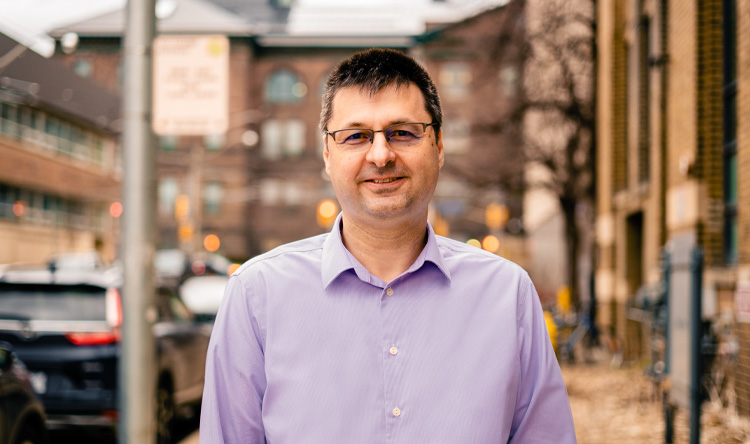Get to know F&S: Milan Cerovina
“Even if 99% of a system is functioning, a one percent fault can interrupt its performance. My job is to find that one percent,” says Milan Cerovina, mechanical services engineer with Facilities & Services.

After graduating from the University of Belgrade with a degree in mechanical engineering, Cerovina came to Toronto in 2002. After initially working in refrigeration equipment manufacturing, Cerovina joined the University of Toronto in 2017.
He is part of the F&S mechanical and building operations group, a team of operating engineers, lead hands, and area managers who manage day-to-day heating, ventilation, cooling, and other mechanical systems.
“The building operators tell me when we have something that isn’t working right,” Cerovina says. “I conduct investigations to resolve those problems.”
Cerovina’s colleagues share that he always comes to the rescue.
“He’s a friendly member of our F&S family. With his outstanding curiosity to solve technical problems and his comprehensive knowledge of our buildings and systems, Cerovina is the go-to person whenever someone hits a roadblock in design or needs an HVAC system urgently assessed,” says Jelena Vulovic-Basic, senior manager, building mechanical services.
When something isn’t working right, Cerovina’s experience as a forensic engineer taught him to get to an issue’s root cause.
“I used to work for a forensic engineering company that supports insurance companies to investigate the root cause of failures that resulted in insurance claims,” Cerovina recalls. “When there was a fault, I was dispatched to investigate who was responsible, how the failure occurred, and who should pay the claim.”
Cerovina’s work in forensic engineering helps him troubleshoot and fix systems at U of T, such as updating chiller programming sequences and identifying old valves that need to be replaced.
Cerovina also runs feasibility studies on project proposals.
“University departments will ask us whether they should go ahead with a project. This seemingly simple question may have a complex answer,” Cerovina says. “I review the space to gauge what kind of technical approaches, construction schedules, and financial resources are needed. Then, I conclude whether to recommend the project.”
For example, Cerovina was tasked with finding feasible ventilation options for a 175-student classroom with no mechanical ventilation.
Initially, constructing new ductwork and connecting it to an existing system seemed possible. However, he discovered that this plan would require relocating a significant number of occupants.
To avoid a disruptive relocation, Cerovina proposed a new rooftop air handling unit serving only the classroom and reviewed a design and installation plan.
In his personal life, though, Cerovina’s main challenge is figuring out what countries to hit on the way to visit his family and friends in Serbia. As a world traveller, he loves to sample diverse cuisines.
